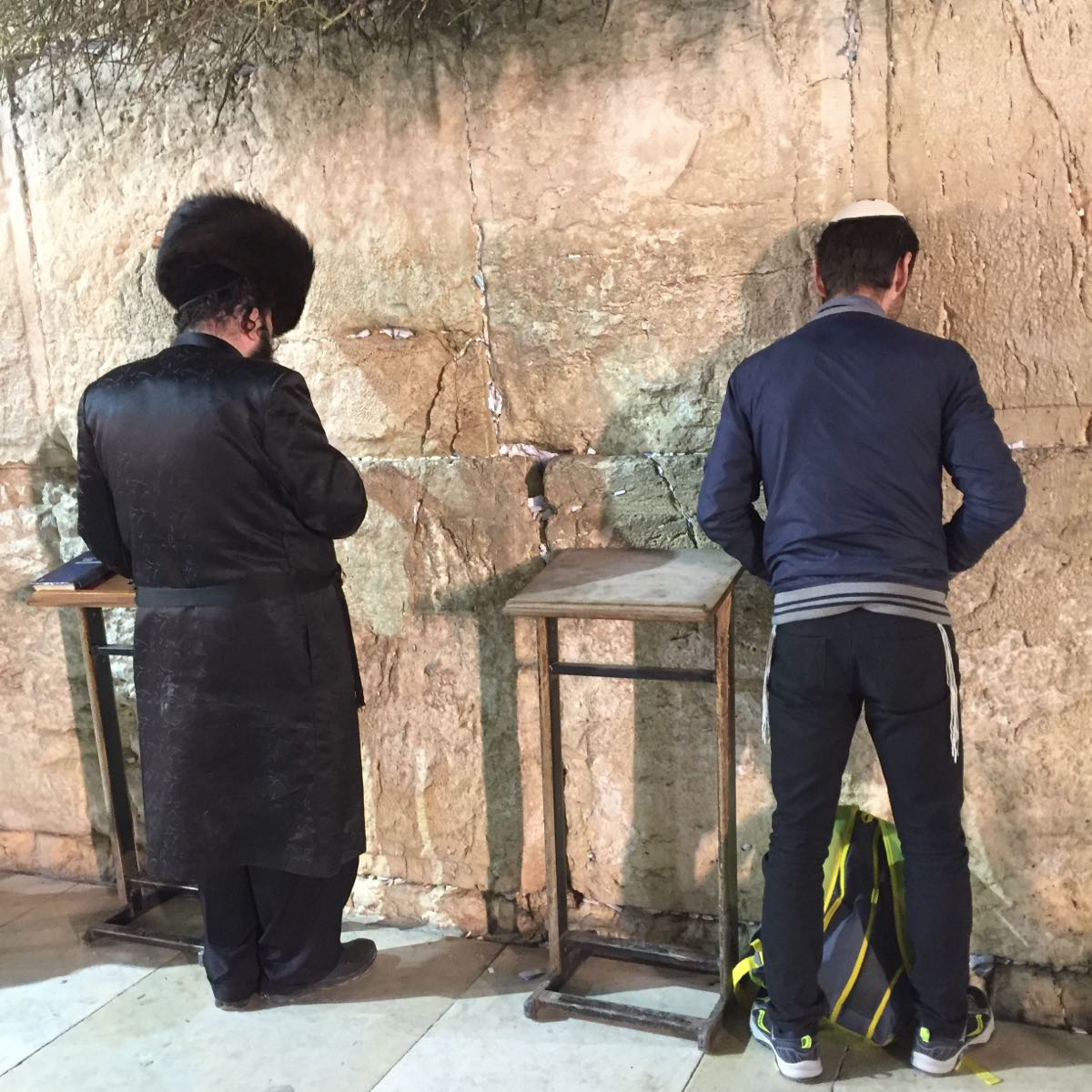
26 Oct 2017 Lech Licha: A Life of Tests, a Life of Triumph
 In this week’s parsha, Parshas Lech Licha, we begin to journey with Avraham Avinu, the founder and father of the Umah Yisraelis, the Jewish nation.
In this week’s parsha, Parshas Lech Licha, we begin to journey with Avraham Avinu, the founder and father of the Umah Yisraelis, the Jewish nation.
From a family of idol worshippers, Avraham recognized One G-d at the age of forty (according to the Rambam), and spent his life perfecting himself. By the word of Hashem, Avraham journeyed to the land of Canaan at the age of seventy-five.
The Sages teach (Avos 5:3): עשרה נסיונות נתנסה אברהם אבינו עליו השלום ועמד בכולם, להודיע כמה חיבתו של אברהם אבינו עליו השלום – Avraham Avinu was tested with ten tests, and he withstood them all, in order to make known how great was our father Avraham’s love (for G-d).
According to the Bartenura (commentary to Avos 5:3) the ten tests of Avraham were:
- Being thrown into the fiery furnace by King Nimrod, in Ur Kasdim (from which he miraculously escaped with his life) (see Rashi to Bereishis 6:28);
- לֶךְ-לְךָ מֵאַרְצְךָ – the command to journey forth from his land, to a new land, at the age of seventy-five;
- וַיְהִי רָעָב, בָּאָרֶץ – Lo and behold, when he reaches the Promised Land, there is a famine in the Land! And so, in search of food, Avraham descends to Egypt, where he meets his next test:
- וַתֻּקַּח הָאִשָּׁה, בֵּית פַּרְעֹה – and Sarah was taken to the house of Pharaoh (Tests 2-4, see Chapter 12);
- The war of the Four Kings and the Five Kings, which affected Avraham when his nephew, Lot, was captured in battle (Chapter 14);
- The Covenant between the Pieces – when Avraham was told that his children would be strangers, and enslaved and oppressed, in a land not theirs (Chapter 15);
- Bris Milah – the command to circumcise himself at the age of ninety-nine (Chapter 17);
- Sarah was abducted by Avimelech, king of Gerar (Chapter 20);
- גָּרֵשׁ הָאָמָה הַזֹּאת, וְאֶת-בְּנָהּ – the sending away of Hagar and Yishmael (Chapter 21);
- Akeidas Yitzchak – the binding of Isaac (Chapter 22).
Not for naught is the book of Bereishis known as Sefer Ha’Simanim, the Book of Signs (Omens, Foreshadowing), for the Sages teach that כל מה שאירע לאבות סימן לבנים – all that happened to our forefathers, was a foreshadowing for their children.
What happened to Avraham Avinu happened, and continues to happen, to us. His life, his tests, and his journeys, are our lives, our tests and our journeys.
From time immemorial, beginning with the fiery furnace of Nimrod, who wanted to kill Avraham for believing in a G-d he did not understand, we have faced the same tests.
And nevertheless, despite all of his tests, and a life of contradiction (through Yitzchak will your progeny be vs.Take your son… and bring him up as an offering) (Go to the Land, for it will be good for you…And upon arrival, there is a famine in the Land!) the pasuk tells us: וְהֶאֱמִן בה’ וַיַּחְשְׁבֶהָ לּוֹ, צְדָקָה, And Avraham believed in Hashem, and He (Hashem) reckoned it to him as righteousness (15:6). Rashi notes that Hashem reckoned it for Avraham as a credit and righteousness, regarding the emunah (trust, belief), for Avraham had emunah in Him.
If the tests of Avraham are part of our inheritance, then the stalwart faith of Avraham is part our inheritance as well. ‘כִּי יְדַעְתִּיו, לְמַעַן אֲשֶׁר יְצַוֶּה אֶת-בָּנָיו וְאֶת-בֵּיתוֹ אַחֲרָיו, וְשָׁמְרוּ דֶּרֶךְ ה – For I know, says Hashem, that he (Avraham) will command his sons and his household after him, to guard the way of Hashem… (18:19).
R’ Soloveitchik zt’l relates, “A Jewish doctor, an atheist, wrote a memoir of his experiences as an inmate in a concentration camp in Latvia. The daily schedule required the inmates to wake up at 4:30am, to perform backbreaking work for 14 hours daily in subzero temperatures wearing threadbare clothing. The work itself was useless; the routine was designed merely to exhaust the inmates. Many left for work never to return. Those who did survive each exhausting day of slave labor were forced to stand in line at the gate upon their return to the concentration camp, where doctors at the entrance examined each of them. Those deemed too unhealthy to continue working were sent to the gas chambers and crematoria…
“In his memoir, the doctor wrote of a group of yeshiva students along with their rosh yeshiva, followers of the Mussar school of Novardok, who were imprisoned along with him. At night, upon their return to the barracks, these yeshiva students would sit on the ground with their rosh yeshiva and recite Tehillim: ‘מִמַּעֲמַקִּים קְרָאתִיךָ יְ, From the depths I called You, Hashem (Ps.130:1). Witnessing this scene, the doctor wrote that he would have given up his very life to have the faith to recite Tehillim under such circumstances.
“The uniqueness of the Jew is the ability to perceive G-d’s Presence even in terrible conditions” (Machzor Masores Ha’Rav l’Yom Kippur, p.325-326).
Though Avraham lived a life of tests, his life was one of glory, triumph, faith and hope.
Perhaps, this, then is the promise of G-d to Avraham regarding his children. That after our wanderings, and exiles, our subjugations and pain, nevertheless (Bereishis 15:14): וְאַחֲרֵי-כֵן יֵצְאוּ, בִּרְכֻשׁ גָּדוֹל – and after it all, we will leave with a vast and glorious spiritual wealth, for the faith we never left behind.
בברכת בשורות טובות ושבת שלום,
Michal



Sorry, the comment form is closed at this time.